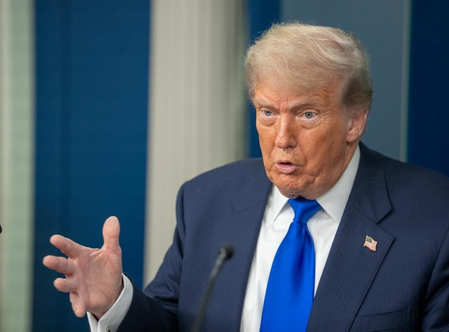Trump's Tariff Delay Injects Economic Uncertainty Amid Global Trade Tensions
Trump postpones major tariff implementation to August 7, creating new economic uncertainty as legal challenges mount and allies question U.S. trade policy reliability.

President Trump signs executive order delaying implementation of controversial global tariffs
President Donald Trump has abruptly pushed back the implementation of his sweeping new tariffs to August 7, injecting fresh uncertainty into an already volatile global trade landscape. The delay comes after weeks of the administration promising an ironclad Friday deadline for the controversial trade measures.
Shifting Timelines and Economic Impact
The postponement affects tariffs on 66 countries, the European Union, Taiwan, and the Falkland Islands. While Trump maintains the process is going "very well, very smooth," the delay has left consumers and businesses grappling with continued uncertainty. The move follows a pattern of controversial trade decisions affecting Mexico, where similar extensions have raised economic justice concerns.
Legal Challenges and Constitutional Questions
The very legality of Trump's tariff strategy faces mounting scrutiny. A U.S. appeals court hearing on Thursday examined whether Trump exceeded his authority by declaring an "emergency" under a 1977 law to impose the tariffs without congressional approval. This controversy adds to a growing list of constitutional challenges to Trump's executive actions.
North American Trade Relations Under Strain
The situation has particularly strained relations with key allies. Canada faces increased tariffs of 35%, while Mexico's rates remain at 25% during a 90-day negotiating period. These decisions have prompted Canadian Prime Minister Mark Carney to question America's reliability as an ally.
Economic Consequences and Market Response
Major corporations are already warning of significant financial impacts. Ford Motor Co. anticipates a $2 billion hit to earnings this year, while other companies signal job freezes and scaled-back investments. The Federal Reserve, led by Chair Jerome Powell, has indicated these trade uncertainties are affecting monetary policy decisions.
Inflation Concerns and Economic Indicators
The Personal Consumption Expenditures index shows prices climbing 2.6% over the past year, suggesting potential inflationary pressures as tariffs impact the economy. Manufacturing employment has declined by 37,000 jobs since April, challenging Trump's promises of industrial revival.
Rachel Whitman
Rachel L. Whitman is a political columnist and investigative journalist based in Washington, D.C. Her writing focuses on democratic resilience, civil rights, and the intersection of technology and public policy. With a background in law and public affairs, she brings sharp analysis and a deep commitment to progressive values.
